Understanding Palm Oil – Part 3: Sustainable Palm Oil
Efforts to identify solutions to mitigate the negative environmental impacts of palm oil can quickly get bogged down in a morass of complex issues. Palm oil is a key ingredient in about 50% of consumer products and is a dietary component for about 50% of the global population. It is already the most widely used oil for food preparation in Africa and Asia and is important in meeting growing global food demand as population growth exacerbates food insecurity. Palm oil is also a highly efficient crop using only one-eighth to one-fifth of land that is required to produce the same amount of rapeseed, sunflower and soybean oil making it nearly impossible to substitute these other vegetable oils without causing even greater harm to the planet. Palm oil plantations also provide jobs and drive national economic development in Indonesia and Malaysia where millions of smallholder farmers are dependent upon palm oil for their livelihoods.
At the same time, palm oil is a primary cause of deforestation as pristine forests are cleared to make room for palm oil plantations. This land use change adversely impacts biodiversity and is driving the extinction of species such as the orangutan, Asian elephant, and Sumatran tiger. Our best hope for mitigation, therefore, is for businesses to adopt best practices by implementing the Palm Oil 3R’s – (i) REDUCE palm oil use in all products to the greatest extent possible, (ii) RESPONSIBLY SOURCE palm oil to avoid land use change, deforestation, and loss of animal habitats, and (iii) REPLACE palm oil in products with alternative ingredients as quickly as possible.
Where palm oil cannot be reduced, KBC advocates for the use of sustainably sourced palm oil. Sustainable palm oil sourcing ensures the cultivation process is done with the smallest negative impact on the environment. Consumers, however, face challenges when assessing whether products include ingredients derived from palm oil and, if so, whether the palm oil has been sustainably sourced. Palm oil free certifications seek to provide assurance that product ingredients are made without palm oil while sustainable palm oil certifications enable consumers to select products that are not contributing to detrimental habitat loss from deforestation. In 2004, the Roundtable for Sustainable Palm Oil (RSPO) was established, but even with all of the progress that has been made over the past 15 years, today only 19% of palm oil is RSPO certified.
The Roundtable on Sustainable Palm Oil is the largest group working to increase the sourcing of palm oil grown using zero-deforestation palm oil cultivation practices. With RSPO, palm oil producers are certified through strict verification of the production process to the RSPO Principles & Criteria for Sustainable Palm Oil Production, and its certification can be withdrawn at any time. All organizations throughout the supply chain that use RSPO certified products are audited to prevent any mixing with non-sustainable palm oil. The Rainforest Alliance is another organization that works with companies to trace their palm oil supply chains back to mills. Increasing palm oil traceability and supply chain transparency is an essential step in certifying a deforestation-free policy is being upheld.
Two new certification efforts – the Orangutan Alliance Organization and the International Palm Oil Free Certification Trademark – are working to eliminate palm oil usage in products by raising awareness of the wide-reaching impact of palm oil while seeking to ensure that customers can make informed decisions regarding the impact of their purchases. The Orangutan Alliance Organization is dedicated to promoting the reduction of non-sustainable palm oil in consumer products by avoiding the oil altogether. The International Palm Oil Free Certification Trademark is one of the most stringent labels that prioritizes a multi-pronged approach to protect the world’s rainforests from palm oil production. Both these organizations certify zero use of palm oil in the production of goods with their respective labels, and support rainforest reforestation and other projects that mitigate the devastation caused by non-sustainable palm oil production.
Some companies are leading their industries in sourcing sustainable palm oil or reducing their use of it. Unilever, Procter & Gamble, and the Body Shop have all been members of RSPO for over 10 years, and they all have strong deforestation-free supply chain initiatives and implementation processes. Lush, a privately-held cosmetics and beauty company, is an example of a smaller company that is working to phase out the use of palm oil from its products. This initiative is an ongoing effort due to the complexity of ensuring that there are no palm oil derivatives in its supply chain. Lush has developed its own soap base with cocoa butter, olive oil, castor oil and sodium hydroxide, which creates a lather without a palm oil derivative, and they are working to implement similar replacement recipes in their other products.
Identifying alternatives to palm oil is the surest way to reduce, and ultimately eliminate, its harmful environmental impacts. However, finding an alternative to palm oil is no easy feat, since most alternative oil crops are grown in the same areas of the world as palm oil, require more land, and produce lower oil yields. KBC therefore applauds those companies that are working to identify unique and less environmentally detrimental alternatives that could be a viable replacement for palm oil, and a long-term solution to the devastating deforestation caused by the global demand for this ubiquitous commodity.
